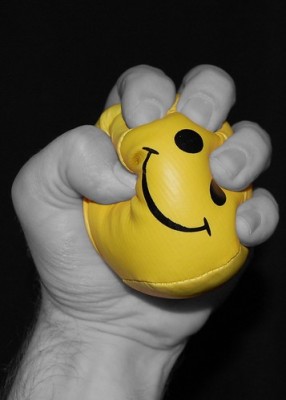Not All Stress Is Bad: 5 Types You Need to Know (and What to Do About Them)
By Dr Sheri Jacobson
This article was originally contributed by Andrea M. Darcy and has been updated and expanded by our team.
Why Understanding Stress Matters
Stress often gets a bad name. We talk about it like something to “get rid of.” But stress is part of life – and not always harmful. In fact, the right kind of stress can push you to grow.
The key is knowing which type of stress you’re dealing with. Because the tension that helps you prepare for a big presentation isn’t the same as the stress that keeps you awake every night.
1. Everyday Stress

This is the short-lived stress that pops up in daily life: traffic jams, last-minute deadlines, forgetting to buy milk.
Most of the time, it passes quickly and your body returns to balance. A good night’s sleep, some exercise, or talking it out with a friend is often enough to reset your system.
2. Chronic Stress
Chronic stress is different. It’s the pressure that doesn’t let up – money worries, a toxic workplace or long-term caring responsibilities.
Over time, chronic stress can affect your immune system, heart health and mood. It’s one of the biggest risk factors for burnout, anxiety and depression.
💡 Check yourself: Do you feel “on edge” almost every day, even when nothing specific has gone wrong? That could be chronic stress talking.
3. Eustress (the Good Kind)
Not all stress is negative. Eustress is the positive tension that motivates you – the butterflies before a date, the nervous energy before a job interview.
This type of stress sharpens focus and helps you perform at your best. The trick is reframing it as excitement rather than danger.
4. Situational & Social Stress
Conflict at work. Family drama. The dread of walking into a networking event. These stressors are rooted in relationships and self-esteem.

By: Fruitnet.com
They can be draining, especially if you struggle with boundaries or people-pleasing. Therapy can be particularly helpful here, offering tools to manage conflict and build confidence in social situations.
5. Acute Stress Reaction
Sometimes stress hits like a lightning bolt. An accident, loss, or traumatic event can trigger an acute stress reaction: racing heart, shaking, trouble breathing, or feeling detached from reality.
These symptoms often fade within days, but if they linger, they may develop into anxiety or PTSD. Professional support is important if you find yourself stuck in this state.
Quick Self-Check: Which Stress Do You Recognise?

By: bottled_void
- Is my stress temporary or constant?
- Is it motivating or draining?
- Am I coping alone, or is it time to get support?
Can Therapy Help with Stress?
Absolutely. You don’t need to wait until breaking point to reach out. Therapy provides:
- A safe, non-judgmental space to offload
- Practical tools for calming your body and mind
- Support in spotting unhelpful patterns and creating healthier coping strategies
Final Thoughts
Stress is part of being human – but it doesn’t have to control your life. By recognising the type of stress you’re dealing with, you can take action early, protect your wellbeing, and know when to seek help.
At Harley Therapy, we connect you with experienced practitioners in London and online, so you can find the right support for you.




